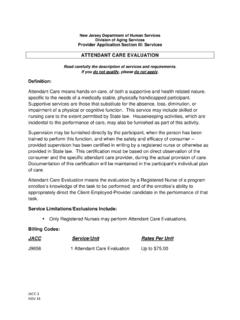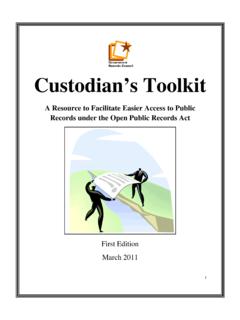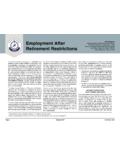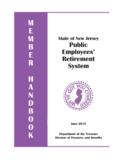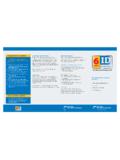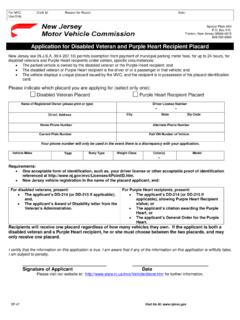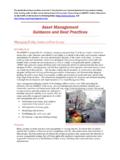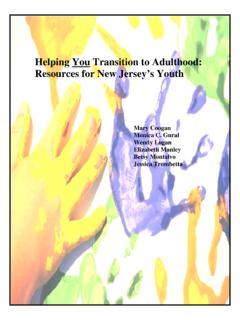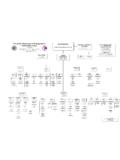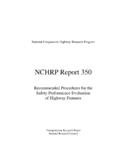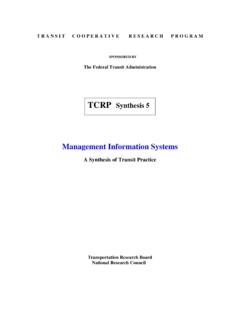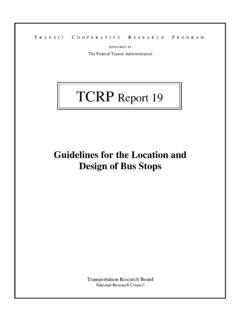Transcription of New Jersey Department of Children and Families Policy ...
1 1 New Jersey Department of Children and Families Policy manual manual : DCF DCF Wide Effective Date: 3-26-2012 Volume: III Administrative Policies Chapter: E Administration Revised Date: 10-7-2019 Subchapter: 1 Administration Issuance: 01-2014 Use of State Vehicles Purpose: This issuance establishes the policies and procedures addressing the use and operation of State vehicles by DCF employees. Authority: 39:1 et seq. 39 39 Policy : A. Permitted Use of State Vehicles 1. All operators of State vehicles issued by DCF shall be employed by the Department of Children and Families , be on the State of New Jersey Centralized Payroll system, and have a valid driver s license.
2 Only the employee who is assigned to a vehicle at any time is permitted to operate the vehicle. Student interns, volunteers, service providers, and contracted employees shall not operate or drive State vehicles. 2. Employees are prohibited from using personal vehicles to transport clients. Families shall be transported in a State vehicle. State vehicles are used by staff for transportation when conducting family-centered, work-related activities only ( , to conduct field work, and may be used by authorized employees in the Office of Licensing(OOL), Office of Information Technology (OIT), Facilities, Institutional Abuse Investigation Unit (IAIU), and Office of Education (OOE) (bus drivers)).
3 State vehicles are not used to attend off-site meetings or trainings. 3. IAIU investigators shall not use his or her personal vehicles for any case or investigation related work. A state car shall be made available in each region for the field investigators. 2 4. Individual exceptions to this Policy shall be made on a case-by-case basis by the Commissioner, the Director of CP&P, the Director of IAIU or the designee of any of those persons, when justified by extenuating circumstances. B. Who Can Ride in the State Car 1. Only State employees on official State business, business invitees (contracted employees), another DCF employee who commutes with the assigned driver, or clients known to the Division on official State business, may ride as passengers in a State vehicle provided the transportation is deemed work-related.
4 2. All passengers shall be listed as participants and have an established relationship and a participant s role to be eligible to be transported. Participants shall become inactive when transportation is no longer required, or the family no longer requires services. C. Driver s License 1. An employee whose job responsibilities require driving shall possess a valid driver's license. The Department has the authority to prohibit an employee from operating vehicles or motorized equipment on the job if any question exists about the validity of his or her driver's license. Under no circumstances is an employee permitted to operate a State vehicle without a valid driver s license.
5 2. If at any time an authorized vehicle operator s license is suspended, revoked, or expired, in any state or jurisdiction, the employee shall notify the employee s immediate Supervisor within one (1) business day of their knowledge of their license being impacted. 3. The Department of Children and Families shall prohibit any employee with more than five (5) points on his or her license from operating a State-owned or leased vehicle. It shall be the responsibility of the employee to advise the employer when he or she has reached or shall reach the level of five (5) assessed points. That notification shall be made within one (1) business day of the assessment of the fifth (5th) point.
6 Vehicle operators with five (5) or more points shall be required to reduce his or her points to less than five (5) points within 30 days of such notification either by standard point reduction or by a New Jersey Motor Vehicle Commission approved point reduction program. Fees for such programs are the employee s responsibility. 4. The Department shall periodically monitor employees drivers licenses for validity. An employee who is authorized to use and who operates a state vehicle under an expired, suspended, or revoked license, or who fails to report a change in the validity of his or her license or the accumulation of more than five (5) points, may be subject to: i. Suspension without pay, 3 ii.
7 Removal, or iii. Other action as determined by the Department in consultation with the Office of Employee Relations (OER) and management. 5. Any employee whose license in suspended for failure to pay surcharges or parking tickets shall be afforded a period of five (5) business days from the effective date to provide proof of a valid license. 6. During the five-day (5) period, the Department may place the employee on temporary assignment, special assignment, or other assignment. If the employee cannot provide proof of a valid driver's license at the end of the five-day (5) period, he or she shall be subject to one of the actions described in "Vehicle Operation as Job Function Policy Section J.
8 D. Appropriate Use of State Vehicle Lawful Operation 1. Employees shall comply with all laws governing operation of a motor vehicle. Failure to do so may result in disciplinary action. E. Smoking Prohibited 1. All persons are prohibited from smoking at any time in a State vehicle. This applies to the driver of the vehicle and all passengers. F. Personal Use of Employees Prohibited 1. The personal use of a permanently or temporarily assigned State vehicle is prohibited. This includes, but is not limited to all State equipment or property issued with the vehicle such as E-Z Pass transponders, GPS devices, etc. 2. During normal work hours when conducting family-centered, work-related activities, ( , field work) the vehicle may be used for authorized lunch break periods, which shall be recorded on CP&P Form 16-68 Vehicle, Log, immediately after returning the vehicle.
9 3. The use of a State vehicle for personal errands, any form of personal shopping, or personal business activity during the authorized lunch or break period is prohibited. The need for emergency medical treatment or prescription drugs by staff in an urgent situation would not be considered unauthorized use. This includes prohibition on the use of a State vehicle for personal errands, any form of shopping, or personal activity during an authorized lunch or break. Note: This section does not apply to assisting with errands for clients. Workers shall be able to transport clients to assist with errands. Workers shall clearly document this transportation on the Contact Activity Note.
10 G. Use of Wireless Devices: 1. Consistent with State law, DCF employees shall be able to use hands-free wireless devices, while operating a State motor vehicle. This applies to both State-issued wireless devices and personal wireless devices. 2. In the interest of safety, an employee shall pull the State vehicle over to a safe location, off the road and out of traffic, before using a wireless device. 4 3. Employees who use State vehicles and need to determine directions, shall program any GPS they have prior to driving and may listen to it as they drive. If there is a need to re-program the device, the driver shall pull over and stop driving to do so. H. Safe Use of Vehicles 1.
